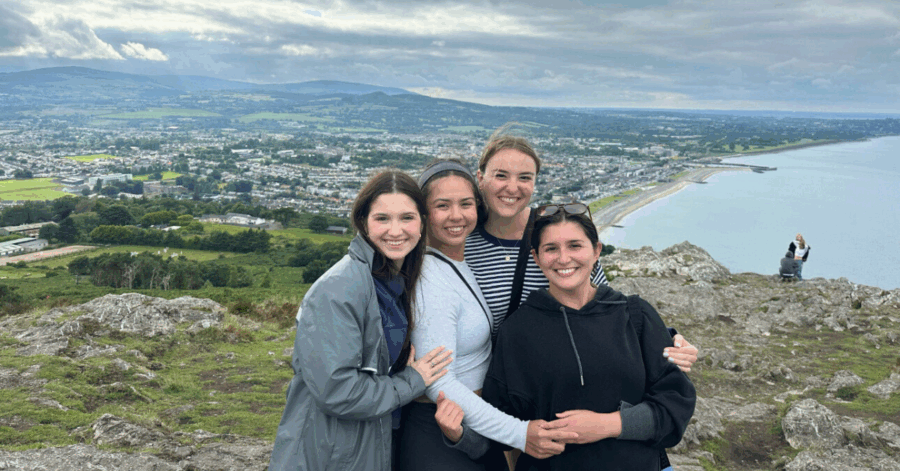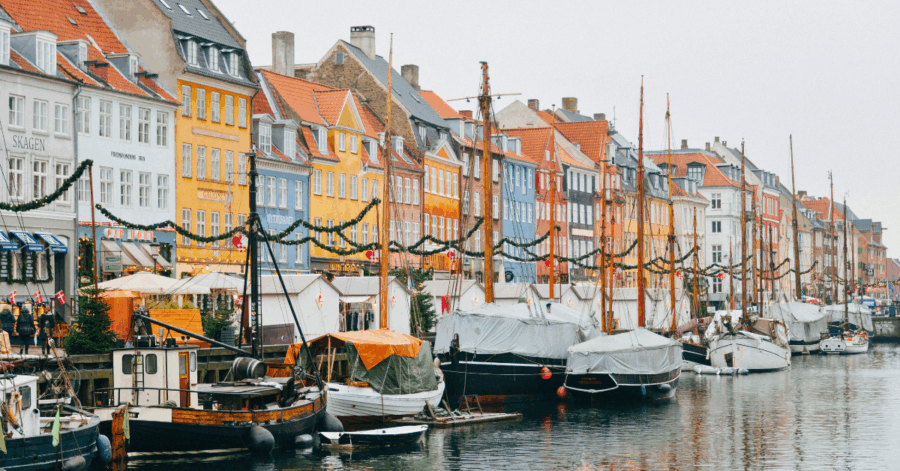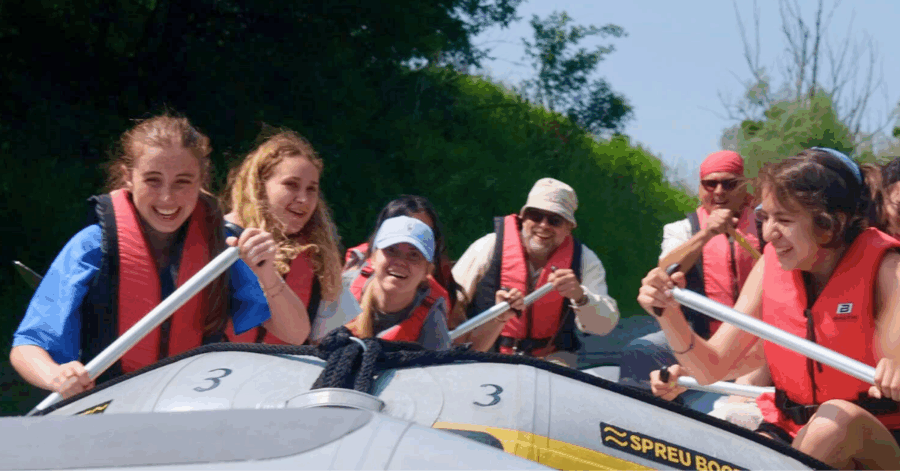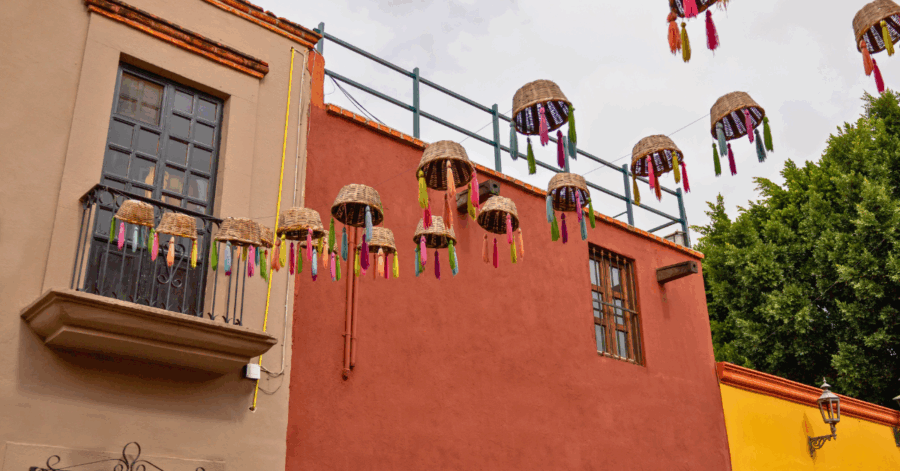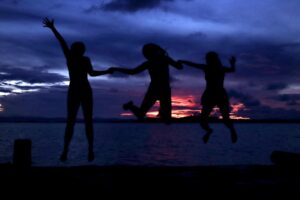
There is a point while living abroad where you have to give up on dry feet and let your socks get wet. Metaphorically, this means that there have been many points where I have had to step out of my comfort zone and welcome new experiences and ideas, even if they are uncomfortable.
However, as I am studying abroad in Panama during the wet season, this also meant literally letting go of my attachment to dry socks. It means letting my boots get fully submerged in the river, stepping in puddles that were a little deeper than expected and getting soaked through my rain jacket after a sudden torrential downpour.
So what happens when you let your socks get wet? You find frogs! A few weeks ago I found myself in the volcanic crater of El Valle, knee deep in a river, searching in the dark for amphibians along our research transect. I was surrounded by the sounding chorus of chirping tree frogs, but spotting them could get extremely difficult as they camouflage extremely well. We ended up finding a lot, all of which we had to identify and photograph. I stood there in the river, with a tiny green glass frog in my hand, feeling so in awe of the things I’ve gotten to experience here.
A couple meters away in the forest you could find picture perfect red-eyed tree frogs straight from a stock image. My inner biologist was absolutely thrilled. This was even more special due to the fact that amphibians are facing many threats, with species going extinct everyday due to habitat loss, changes in environmental factors and the disease-causing chytrid fungus. The joy and surprise of encountering so many frogs made me forget my sopping wet socks that might have once ruined my evening.
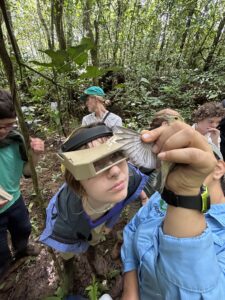
After three weeks in the field and being constantly wet, dirty, tired and covered in mysterious bug bites, I couldn’t be happier. After learning about amphibians, we got to study birds in Campana National Park and corals in the Guna Yala Comarca. These units were all part of my ecology course, an intense three weeks of field work, projects and quizzes with amazing professors local to Panama. I found myself measuring wingspan on just-identified tropical bird species, documenting coral bleaching on beautiful reefs and watching tapirs cross the same place I once stood on our camera traps. I feel like a sponge soaking up all this amazing information and getting to witness ecology firsthand.
In my program, we are constantly on the go. We get to see so many amazing places and things, but I’ve had to get used to being extremely flexible. We don’t stay in any one place for too long, so I’ve gotten pretty good at picking up everything I own and adventuring to a new and unknown location. However, it’s been quite a unique experience trying to move around Panama at a time when most of the country is shut down.
In the past month, there have been many protests against a mineral contract that was signed by the government. The mine will have a huge ecological impact. More often than not, highways are blocked off by protesters and it is nearly impossible to navigate traveling across the country. There have been many changes to my program and we have had to make many adjustments. I’ve learned how to stay relaxed in times of constant change, remain confident throughout uncertainty and settle into flexibility. It can be difficult to fully embrace my learning experience when the country I am occupying is facing so much tension.
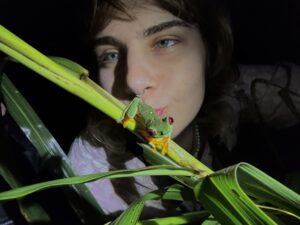
As an ecology student, I am learning about biodiversity conservation on a daily basis and ecological tensions in real time are playing out in front of me. At times it can feel very surprising to realize how big of an impact something can have on one country and go unnoticed on the global sphere.
Many people don’t know much about Panama besides the Panama Canal and many people think that I am studying abroad in Costa Rica instead of Panama because I am an ecology student. In times like these, I understand how important it is to have a global perspective. I am grateful for everything that I have learned from this country so far, but I am also mindful that I have a lot of privilege to be mobile in the current situation when a lot of people are not, and I am thankful for the people who have helped me along the way.
Living in the tropics, everything is unpredictable. One minute you are completely dry and covered in sweat, the next you’re soaking wet from sudden rain. Every week I go to sleep in a different place. I could be in a rainforest, next to the ocean or inside of a city. The environment here is constantly changing and I’ve seen how the resilience and fragility of nature can go hand in hand. In Panama, I’ve gotten used to going with the flow, accepting uncertainty and sometimes, letting my socks get wet. That’s when the fun starts.
This post was contributed by Fiona Wyrtzen, a Global Ambassador for Fall 2023. Fiona is a junior environmental science studies major studying abroad in Panama City, Panama.


